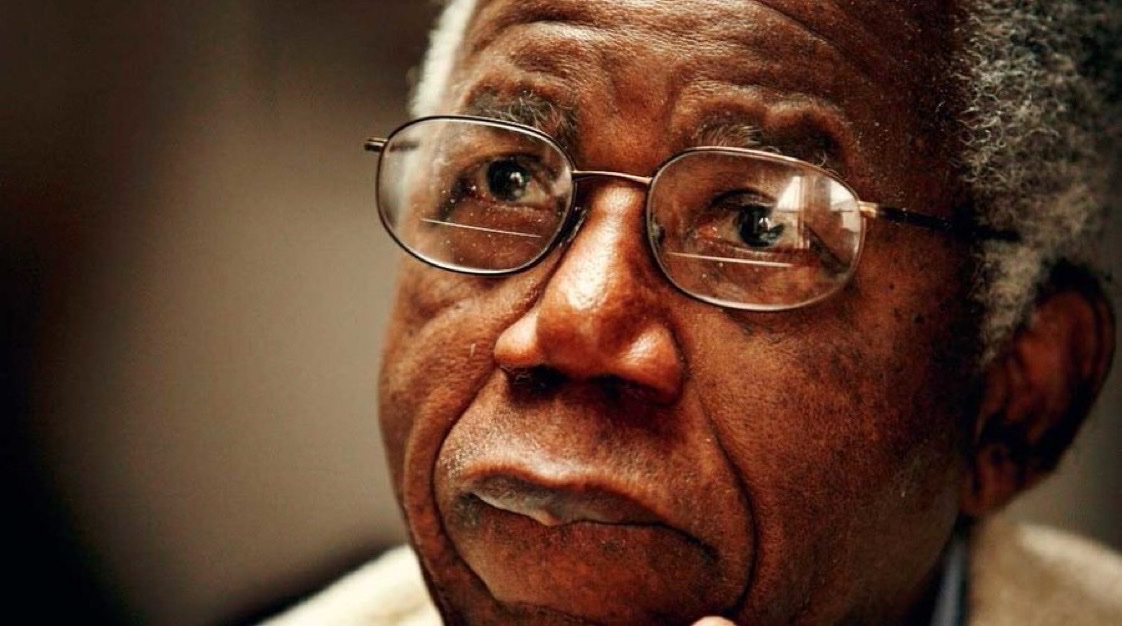DIDN’T remember to tell you yesterday, but I’ve just finished reading Achebe’s THERE WAS A COUNTRY. I’m amazed at his cavalier attitude to basic facts of history and the strident tone of victimhood along with the inability to see anything wrong with Biafra.
Not to mention his frightening subjectivism in appraising historical figures on the other side of the divide. Achebe has opened new flanks of battle: intellectual and political”- TEXT I SENT TO SEGUN AYOBOLU
I spent the weekend reading Chinua Achebe’s long-awaited book on his Biafran experience: THERE WAS A COUNTRY: A PERSONAL HISTORY OF BIAFRA. It is a very explosive personal account of the most tragic phase in Nigerian history: the Civil War of 1967 to 1970. I am not surprised that despite the fact that most people have only seen excerpts from the book, they have reacted angrily to his descriptions of the motives and actions of historical figures.
This has been true of his description of Chief Obafemi Awolowo’s war policies. It was clear that the Yoruba elite and other champions of the war-time Finance minister and architect of Nigeria’s economic policies in the immediate post-war years, would not take things lying low.
Chief Awolowo is no longer alive to respond to Achebe’s description of an alleged wartime statement as ‘callous and unfortunate’; that: “all is fair in war, and starvation is one of the weapons of war. I don’t see why we should feed our enemies fat in order for them to fight harder”. The responses to these have gone viral on the internet.
If people have been angry about the strident tone of accusations, nothing has stoked anger more in the South-west, than his characterisation of Chief Obafemi Awolowo: “It is my impression that Chief Obafemi Awolowo was driven by an overriding ambition for power, for himself in particular and for the advancement of his Yoruba people in general.
And let it be said that there is, on the surface, at least, nothing wrong with those aspirations. However, Awolowo saw the dominant Igbos at the time as the obstacle to that goal, and when the opportunity arose-the Nigeria-Biafra War-his ambition drove him into a frenzy to go to every length to achieve his dreams.
In the Biafran case it meant hatching up a diabolical policy to reduce the number of his enemies significantly through starvation-eliminating over two million people, mainly members of future generations”. Expectedly, the followers of Chief Awolowo are baying for battle!
War is a most brutal continuation of hegemonic political battles and the events of the 1960s pitted against each other formidable foes. A ruling class consensus had foundered long before the coup of January 1966 scattered the political process. But the sinister element was the ethnic dimension which the first coup assumed, consciously or accidentally.
The fact that only leading members of the regional political leadership of Northern and Western Nigeria suffered disproportionately, was bound to set the stage for the counter-coup and the crisis which that generated in turn: the massive killings of Easterners; the mass movement of people around the country; the political impasse which became the prelude to the declaration of Biafran secession and the war.
In war, the earliest casualty is often the truth and propaganda becomes the handmaiden of political expediency. Biafra was the height of propaganda and reading through Achebe’s book, it was amazing to see how our greatest writer himself helped to fashion the process of propaganda; was an emissary for the secession and ultimately, became a believer of the propaganda of his own side of the tragic war.
I was surprised that Chinua Achebe can be as cavalier with basic facts as he was in the book. For example in page 46, he said: “when Sir Ahmadu Bello, the Sardauna of Sokoto, decided to create the Northern People’s Congress (NPC) in the late 1940s…” But Dr. Barau Dikko CREATED the NPC! So if our great writer is ignorant of this basic fact, what else has he been ignorant of, in his narrative? The prejudice flows through when he talked about “Ahmadu Bello and HIS HENCHMEN (my emphasis)” in describing the Northern leadership.
He went further to join the fashionable Southern mindset about how a British official named Harold Smith had been selected by Sir James Robertson “to oversee the rigging of Nigeria’s first election ‘so that its compliant friends in (Northern Nigeria) would win power, dominate the country, and serve British interests after independence’”.
Yet the basis of a political process which made it difficult to overcome regionalism, had been a central aspect of his book. It was the famous writer, Tolstoy, who once said that the most important thing in art as in life, is to tell the truth. We will look at the truth in the face, through Achebe’s book, next week.


